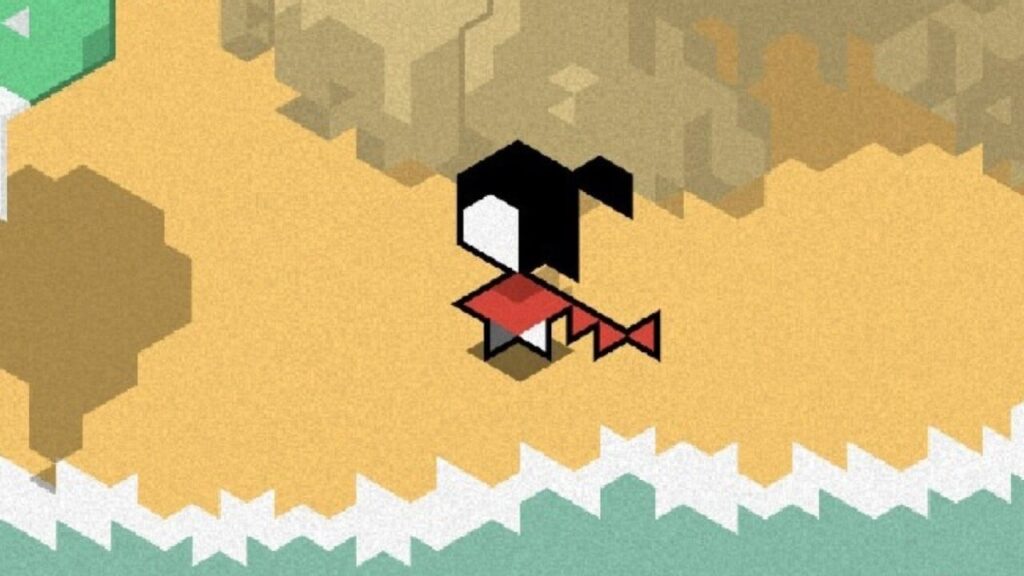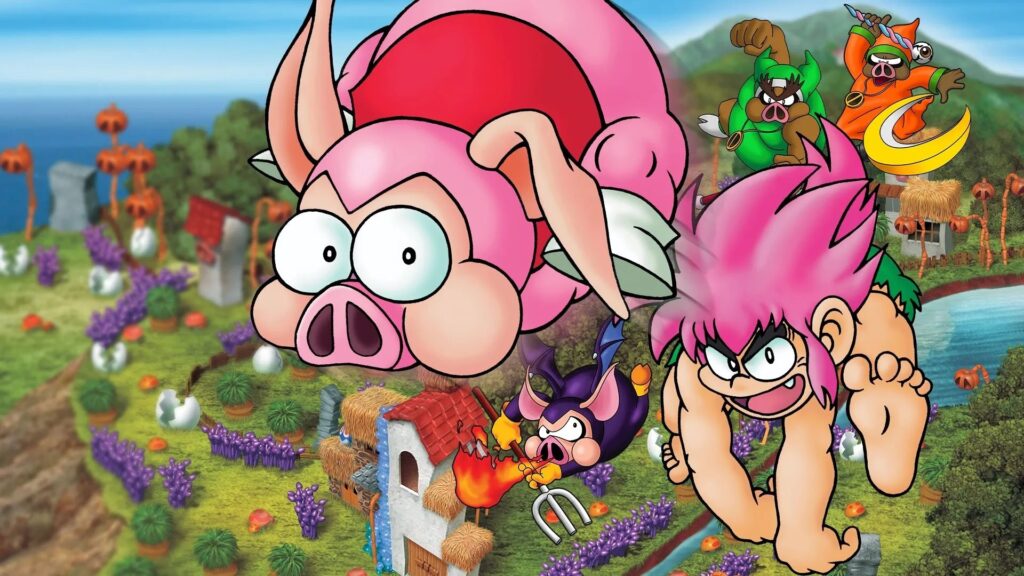
Tomorrow, the debut release from sole developer PixelManta, manages to be philosophically interesting, evocatively written, visually distinct, and lovingly crafted. However, the notion of replaying it – which you’ll effectively have to do by design – is a tall order, and therein lies the unfortunate problem with this otherwise laudable indie effort.
When we reported that Overmorrow’s central mechanic of deleting a player’s save data after 30 days in-game, the comments section was filled with discussion on the merits of such game design. A player’s time is precious, and wielding a Damocles sword over data storage is one of the most provocative decisions a developer can make.
Overmorrow places you on a seemingly deserted island with 30 days to uncover its secrets before all progress is reset. You gain elemental magic spells that manipulate the environment and are essential to solving puzzles and progressing. But spells can only be cast in a very limited amount each day and can only be recovered after a night of rest at a campfire.

Each passing day brings you closer to Overmorrow’s impending doom, a rescue-wipe that serves as a metaphor for the fleeting flight of life itself. Transient themes abound in the game’s evocative writing, imbuing it with a sense of Memento received. To be sure, there is beauty in Overmorrow’s message and inspirations. With a unique, triangular style of mosaic art, nothing else looks like it. As each day passes, headstones appear in a picturesque cemetery that prompt us to reflect on those who lie beneath. But the hard truth is that a game like this lives or dies on its gameplay fundamentals, and there are core issues here.
Chief among them is that the 1.0.0 release version of the game contains a bug that prevents the completion of the campaign. The developer is aware of the problem and a fix is on the way. Although we weren’t able to finish the story as a result, we’ve seen the lion’s share and spent a lot of time with it to form a clear opinion. We spent up to four hours on each of our playthroughs trying to see everything, but the game can be tackled in about one to two hours if you know what you’re doing.
Time schemes appear in games like The Legend of Zelda: Majora’s Mask, Outer Wilds, and Minit, each requiring, in different ways, managing your actions within a certain amount of time. Common to these well-known titles is the risk of wasting time and losing progress while retaining the knowledge gained from the previous cycle. In games like this, a solid foundation is essential.

While Overmorrow takes great inspiration from these mechanics, its unguided exploration suffers from flawed design choices that require a trial-and-error approach to solving its many puzzles. There are endless possibilities to actually solve its often cryptic puzzles and enough of opportunities for wrongful death or accidental inputs.
The chances of beating the game in an initial game without running are zero. Apart from a short linear section at the beginning to familiarize you with the use of magic, there is little explanation of objectives or hint signage. Some early obstacles to progress were not at all clearly indicated, and we discovered the solutions largely by accident. You are free from the start to explore the island and find magic crystals that increase your daily allocation of spells, which are applied by holding down the shoulder button and pressing either ‘A’, ‘B’, ‘Y’ ‘ or ‘X’. Overmorrow doesn’t always clearly specify which button each elemental spell is associated with, which created a lot of unnecessary initial confusion for us.

It doesn’t help that the game’s abstract art style often makes it difficult to tell which elemental spell to place in a given situation, often leading to a mis-expenditure of resources and a wasted day. As a result, an initial sense of discovery quickly gave way to immersion-breaking frustration that detracted from the overall experience.
There were also numerous instances where we wondered if something was a bug or an intentionally designed element. Navigating through the game’s poisonous mushroom forest, for one, is supposed to kill you, but we were able to force our way through by exploiting pockets within the map, which didn’t seem like an intended or elegant way to proceed.
Once we gathered all of our basic elemental magic and developed a clearer understanding of what the game expected of us, we were able to hit the ground running and quickly unlock new areas of the island, as well as puzzle-filled dungeons and areas of hidden. Tomorrow is at its best when you’re able to find out without a lot of guesswork or friction. It’s designed for multiple playthroughs, starting with a discovery and failure to race against the clock, and subsequent runs made easier with saved knowledge. But such a design is based on the notion that the game is compelling enough for you they want to do it all over again. Tomorrow assumes a lot from you.

As we went deeper down the rabbit hole in our second playthrough, the novelty of traversing the world and re-solving its puzzles faded and became tedious. The save wipe can be a compelling thematic and metaphorical device, but in gameplay terms, it felt like an overkill, especially given the game’s broader lack of guidance.
In the second half of Overmorrow, brief physical contact with obstacles like black holes, jellyfish, or falling into lava after making the wrong check on a narrow dungeon path costs you an entire day. In theory, one could still have a few days to go before clearing the save and not uncovering enough spell reserves to even finish the game, which is a real drag. There is no timer on in-game days, which last until you return to the campfire with your magic depleted, or if you succumb to damage from some of the aforementioned threats.

Overmorrow’s soundtrack was composed by Canadian singer-songwriter Jim Guthrie, who worked on the acclaimed Superbrothers: Sword & Sworcery EP. Its music is certainly based on the atmosphere of the game’s various environments, although you can expect to hear the same tune on loop if you’re stuck on a particular puzzle. The game’s sound design can be a little choppy at times, though, especially in the mushroom forest area, where a discordant melody can suddenly cut in and out depending on where you walk, which feels raw.
Although the framerate didn’t drop noticeably often, we did experience at least one crash and two glitches that required a reboot: one involved the player character getting caught on a wall and getting stuck there, while in another section the map disappeared completely and we were left wandered across a nondescript blue screen. Run away.
CONCLUSION
Overmorrow has its share of satisfying eureka moments and is a compelling concept. While there is a real purity of intent behind its development, it would greatly benefit from more tuning and playtesting. If its many bugs and issues are eventually ironed out and quality-of-life improvements are added, it would indeed be a worthwhile journey for gamers interested in its premise – but be prepared for moments of frustration along the way.



